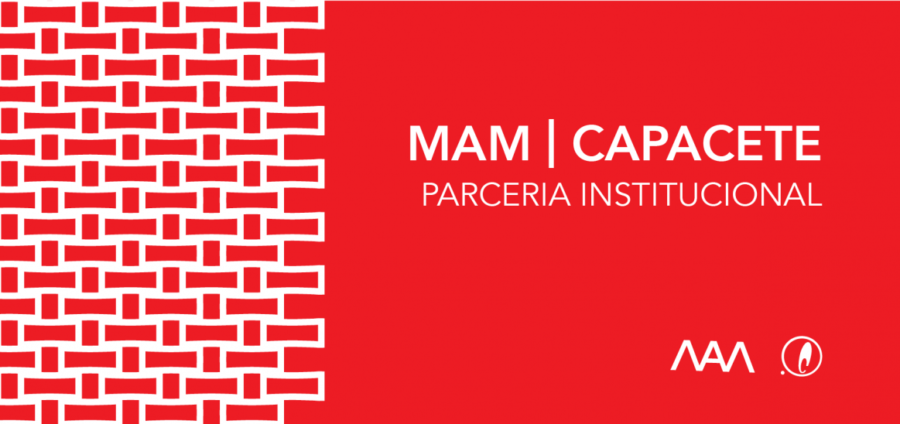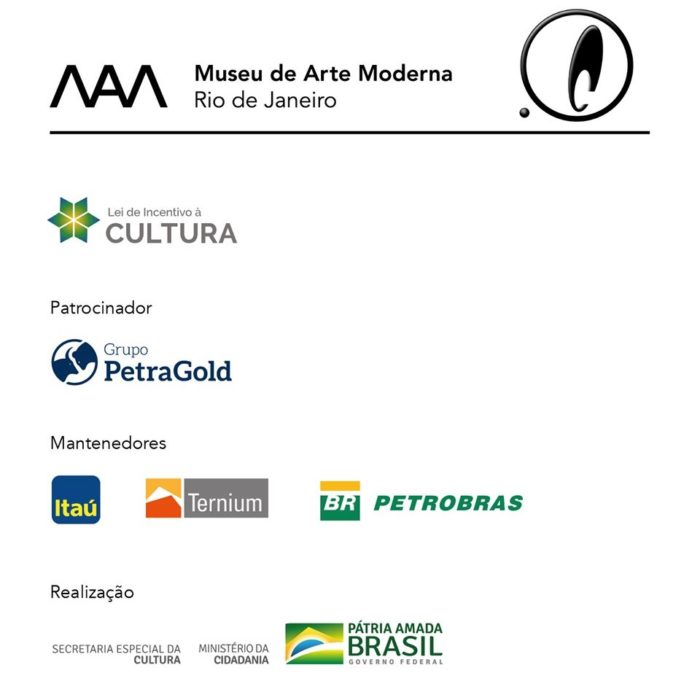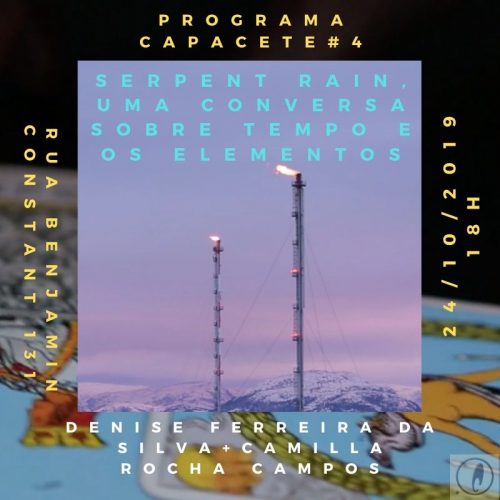
The Museum of Modern Art in Rio and the CAPACETE residency and artistic-cultural exchange program started an institutional partnership in March 2020, when the project to transfer part of CAPACETE’s activities to the museum began to be developed. Initially designed to take place in the museum’s physical space, at its headquarters in Parque do Flamengo, the project had to undergo adaptations in order to be able to start in virtual spaces while the quarantine resulting from the Covid-19 pandemic lasts. The partnership between CAPACETE and MAM is leveraged by the PetraGold Group’s sponsorship of MAM.
The partnership is part of the broader project of MAM to restore education to a central role in the institution, defined early as a school museum. The goal is to reopen the School Block, the pavilion dedicated to teaching and artistic practice, which was the first building to be construct at the museum’s final headquarters.
The purpose of the MAM partnership | CAPACETE is to develop artistic residencies, to foment research, international exchanges and carry out public programming of dialogues and other activities in the museum space. The partnership is expected to last two years.
“The MAM partnership | CAPACETE brings the opportunity to open the museum for a new interaction with cultural projects of great relevance on the national and international scene ”, says the executive director of MAM, Fabio Szwarcwald. “MAM is supporting the processes that support the theory-practice of art, seeking reflection. MAM allows itself to be a more organic institution, more connected with society ”.
Created in 1998 by the artist Helmut Batista, in the city of Rio de Janeiro, CAPACETE is the oldest and most structured program of artistic and cultural exchange and residency in Brazil. Headquartered in the neighborhood of Glória, next to the center of Rio, CAPACETE makes public presentations in various models, training for professionals (CAPACETE School) and for children (Small Laboratory), open courses, experimental cuisine, library, collection and publications. More than 450 professionals from different countries have already gone through the program.
“CAPACETE really has a very strong international tradition and trust and many international partnerships that can help to leverage a specific program within MAM. I think Fabio Szwarcwald knew how to understand this and wants to join forces to make a bigger program ”, says Helmut Batista. “We always considered that CAPACETE’s performance should be in your region. MAM is within our reach. The School Block was the flagship of its time – it belonged to the School of Visual Arts of Parque Lage – it is there hibernating and now it will go through a transformation ”, says Helmut. “The invitation came in very handy in the process that CAPACETE had been going through: a transformation phase, with Camilla Rocha Campos at the helm, CAPACETE becoming less and less my person. This is a desired, provoked and encouraged process. ”
“Despite its longevity, CAPACETE is a small program, which operates in a very restricted field. The visibility that MAM can give to CAPACETE is also incredible, we will be able to insert ourselves more in the Brazilian context. The programs that we designed for MAM are basically what we have always done: residences in the format of seminars, ”says Helmut.
“We have around 20 to 25 residents each year from different countries; we offer programs of 3, 6 and 12 months in duration ”, says Camilla Rocha Campos, artistic director of CAPACETE. “Our 1-year program is the backbone of our activities. We act as a center of thought where seminars, public speeches, workshops, personalized visits, study trips and experimental art projects take place. The MAM partnership | CAPACETE will be an exercise in cohabitation and respect between a Brazilian historical organization and an independent (historical) space. CAPACETE brings dialogue on new strategies on how to create partnerships that work with less bureaucratic, community structures, and aims to support research and artistic practices that dialogue critically and beyond the mainstream art system ”.
Through continuous activities, CAPACETE’s mission is to create situations and develop strategies that provide concrete and real alternatives to the shifting field of art. The updates and residency programs already carried out were designed to reflect the interdisciplinary character of contemporary ethical-aesthetic practices and promote efforts that articulate the theoretical world with artistic presentations in different formats and dynamics, and for different audiences.
MAM | CAPACETE Team
Fabio Szwarcwald, Lucimara Letelier, Helmut Batista, Camilla Rocha Campos, Luis Marcelo Mendes, Fernanda Lopes e Márion Strecker.




